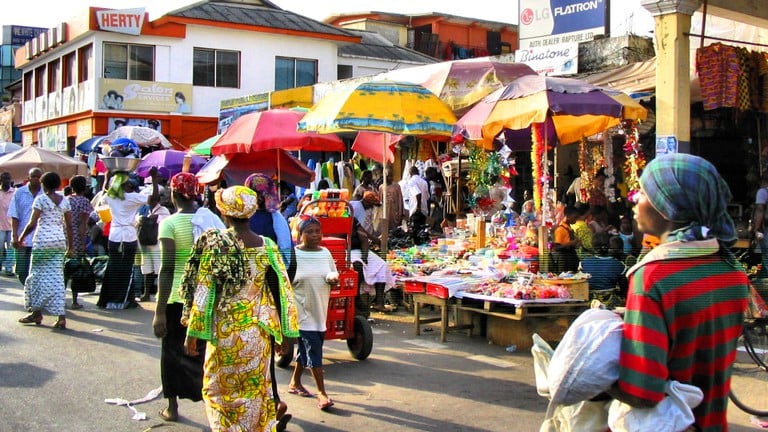Ghana’s economy demonstrated robust growth in the second quarter of 2025, registering a 6.3% year-on-year expansion, a significant improvement from the 5.7% recorded in the same period of the previous year. This positive trajectory signals a resurgence of economic activity following a period of turbulence and underscores the country’s ongoing recovery efforts. The growth was primarily fueled by the vibrant services sector, which surged by an impressive 9.9%, bolstered by robust performance in information and communication, education, manufacturing, and financial and insurance activities. The services sector continued to dominate the Ghanaian economy, contributing 41.9% to the GDP at basic prices, reaffirming its role as a key driver of national economic output.
The non-oil sector also exhibited considerable strength, expanding by 7.8% compared to 5.7% in Q2 2024. This resilience, particularly within the agricultural sector, effectively mitigated the impact of a significant decline in oil production. The agricultural sector grew by 5.2%, largely driven by the livestock sub-sector, while the industrial sector experienced a more moderate growth of 2.3%. The mining and quarrying sub-sector, however, faced a contraction of 1.8%, primarily due to a sharp 22.5% decline in oil and gas output. This divergence highlights the dependence of Ghana’s economy on non-oil sectors, which provided a crucial buffer against the volatility of global oil markets.
Analyzing the expenditure components of GDP further reveals the drivers behind this robust growth. Household consumption surged by 12.2%, indicating increased consumer spending and confidence in the economy. Gross capital formation, reflecting investments in infrastructure and productive assets, also saw significant growth, rising by 17.1%. Net exports witnessed a dramatic surge of 691.6%, suggesting a substantial increase in export earnings relative to import expenditure. While government final consumption expenditure experienced a marginal decline of 0.2%, the overall expenditure pattern indicates a healthy expansion in key economic drivers, contributing to the overall positive growth trajectory.
The positive performance of the Ghanaian economy was also reflected in easing inflationary pressures. Inflation slowed to 11.5% in August 2025, reaching its lowest level since October 2021 and falling below the Finance Ministry’s year-end target of 11.9%. This simultaneous uptick in growth and downturn in inflation paints a particularly promising picture for Ghana’s economic outlook. Lower inflation combined with strong growth is expected to boost investor confidence, attracting much-needed capital and further stimulating economic activity. This positive feedback loop reinforces the effectiveness of the ongoing IMF-backed reforms aimed at stabilizing the economy and fostering sustainable growth.
Professor Samuel Kobina Annim, the Government Statistician, presented these findings in Accra, emphasizing that the growth trajectory points towards a gradual but steady stabilization of the Ghanaian economy. The strong performance of the services sector and the resilience demonstrated by the agricultural sector are key factors contributing to this positive outlook. The observed economic recovery, despite facing challenges in the oil sector, showcases the inherent strength and diversification within the Ghanaian economy. This positive momentum, combined with the downward trend in inflation, sets a favorable stage for continued growth and development.
Looking ahead, the combination of robust growth and declining inflation holds significant promise for Ghana’s continued economic progress. The strengthening investor confidence, driven by these positive indicators, is expected to further propel economic activity and reinforce the effectiveness of the ongoing IMF-backed reforms. These reforms, aimed at ensuring long-term stability and sustainable growth, are crucial for Ghana’s economic future. The next GDP update, scheduled for release in December 2025, will provide further insights into the sustained performance of the Ghanaian economy and the effectiveness of the implemented measures.


